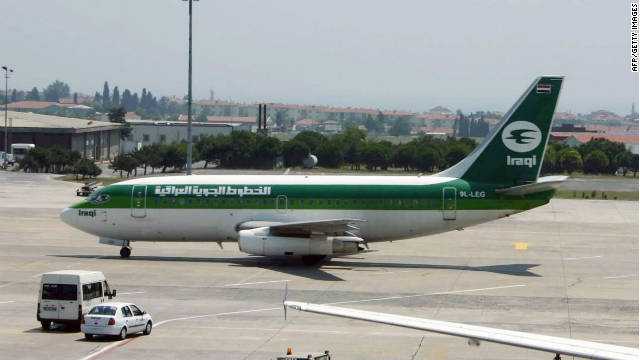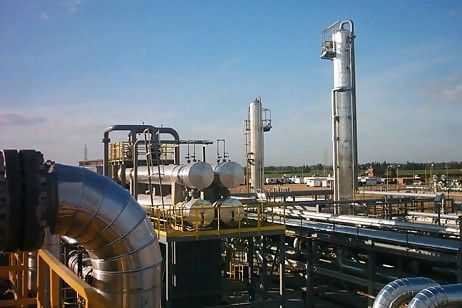 IN more than two decades of Middle East watching, I’ve got used to unexpected events and endless predictions of doomsday scenarios.
IN more than two decades of Middle East watching, I’ve got used to unexpected events and endless predictions of doomsday scenarios.
But, even by its own politically volatile and labyrinthine standards, there have been some very ominous and shadowy things taking place there of late.
Doubters of course might argue that what I’m about to say is only being alarmist and that we’ve been here before. But such a take just doesn’t wash. Recently within the region the implications of both words and deeds have been mind boggling.
Indeed, I’d even go so far as to say that, cumulatively, much of what has been said and done lately displays the potential to merge into the kind of perfect storm of violence and instability rarely before witnessed in the Middle East.
Where to begin, though, when trying to weigh this up? Well, let me first flag up just a few of the dangerous components in this regional timebomb before looking at the mechanisms that in some cases inextricably link them.
To start with, every day that passes indicates a full-scale civil war is emerging in Syria. While many of the stories surfacing from the country are independently difficult to verify, should Wednesday’s attack on an air force intelligence complex near Damascus indeed prove to have been the work of defecting soldiers calling themselves the Free Syrian Army, then the political struggle there has escalated into a new and intensified phase. It is, of course, still early days in terms of writing off President Bashar al Assad.
That said, there are now clear indications of the opposition beginning to wage a co-ordinated insurgency against his Alawite regime, and Syria’s suspension from the Arab League along with other international diplomatic pressure would suggest the president’s days are numbered. This growing regional consensus should be seen for what it is; the product of a rapidly changing geopolitical dynamic across the Middle East and a dangerous one at that.
With the United States nearing its year-end withdrawal of forces from Iraq, Washington and its allies know all too well that Iran is poised to fill the power vacuum in this predominantly Shi’ite Muslim nation. For Tehran it stands as a perfect opportunity to consolidate Shi’ite influence extending from Iraq to Syria, where al Assad’s regime and Hizbollah in neighbouring Lebanon have long provided Tehran with a base from which to threaten Israel.
If the al Assad regime should fall and Syria be returned to Sunni power, however, no doubt many of the region’s key players – Saudi Arabia, Turkey and the United States among them – would breath a sigh of relief over Iran’s loss of influence and ability to arm and fund its militant proxies like Hizbollah in Lebanon and Hamas in the Palestinian Territories. Put another way, if Iran can’t be controlled in Iraq, then a return of a Sunni regime to Damascus would at least clip its wings in Syria.
And, speaking of clipping Iran’s wings, brings me to the second potentially incendiary component currently threatening the region’s stability – Tehran’s nuclear programme. For some time now alarm bells have been ringing in Israel over Iran’s capacity to develop atomic weapons. Those concerns appear to have been borne out by recent reports from the International Atomic Energy Authority (IAEA).
Certainly there are some within the Israeli political and military establishment who, if they had their way, would have already neutralised that threat by whatever means necessary, including a pre-emptive military strike against Iran’s uranium enrichment programme and missile installations. To that end, some observers say a covert war of “black ops” has for some time been waged against Iran.
The assassinations of Iranian nuclear scientists on the streets of Tehran, the Stuxnet Worm computer virus cyber attacks and its recent successor which goes by the name of Duqu that have played havoc with Iran’s nuclear enrichment centrifuges, all point to the fact that someone, somewhere, is determined to deprive Iran of a nuclear weapons arsenal.
Recently, though, the ante has well and truly been upped. Last week a huge explosion at an Iranian Revolutionary Guard base killed Major General Hassan Moghaddam and 16 others. Major Moghaddam was generally seen as the “godfather” of Iran’s missile programme, which has deployed ballistic missiles with ranges of up to 1500 miles –enough to reach Europe.
While Tehran has long insisted the Israeli intelligence service Mossad, or the CIA, have been behind such things, both Jerusalem and Washington have remained schtum. That said, there were some curious remarks in the aftermath of the blast when Israeli Defence Minister Ehud Barak commented that, while he didn’t know the extent of the explosion, “it would be desirable if they multiplied”.
Curiously, too, around the same time as the blast near the Tehran base, elsewhere in the region – Dubai to be precise – another Iranian, Ahmed Rezaie, the son of a high-ranking Tehran official Mohsen Rezaie, secretary of the powerful Expediency Council and former Revolutionary Guards commander, was found dead in the city’s Gloria Hotel. Mystery surrounds the specific circumstances of his death. Even Israeli sources, however, admit the method used to kill him strongly resembled those used in January last year in another Dubai hotel to assassinate Mahmoud al Mabhouh, a Palestinian official who was seen as Hamas’s contact man with Tehran. A murder that many believe was the work of Mossad despite Israeli denials.
As was evident on that occasion, last week’s slaying of Rezaie revealed little signs of violence on the body and according to some sources the Iranian had been injected with a muscle relaxant called Suxamethonium before being smothered with a pillow.
Like pieces in a complex political jigsaw puzzle, all these events – from civil war in Damascus, to bomb blasts in Tehran and murders in Dubai – point to a new and bitter tussle for power across the Middle East that is being executed and perpetrated both openly and covertly. On one level it is a struggle for dominance between Sunni and Shia, between Saudi Arabia and Iran. On another, it is about containing Iranian political and military ambitions and protecting Israel and US interests across the region.
What is most worrying about all of this is both its direction and momentum are unpredictable and the stakes immeasurably high.
One can only begin to imagine, for example, what the simultaneous effects of Syria imploding into civil war and an Israeli military strike against Iran would mean not just for the region but globally.
So many factors could now ignite the blue touch paper and standing well back would be a near impossible option for the international community. The Middle East might just be about to go ballistic, and I’m not simply talking about a few missiles in Iran.
www.heraldscotland.com, 18 Nov 2011





